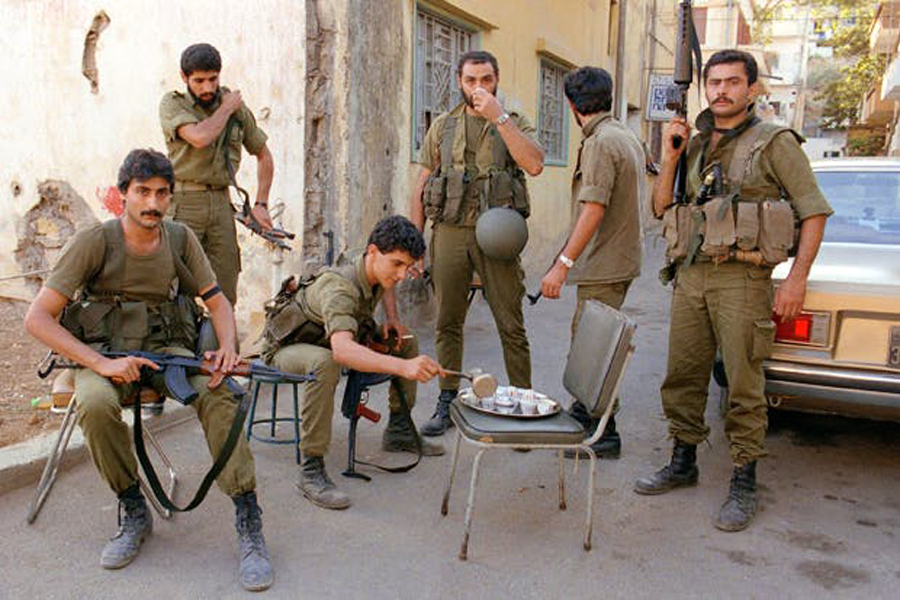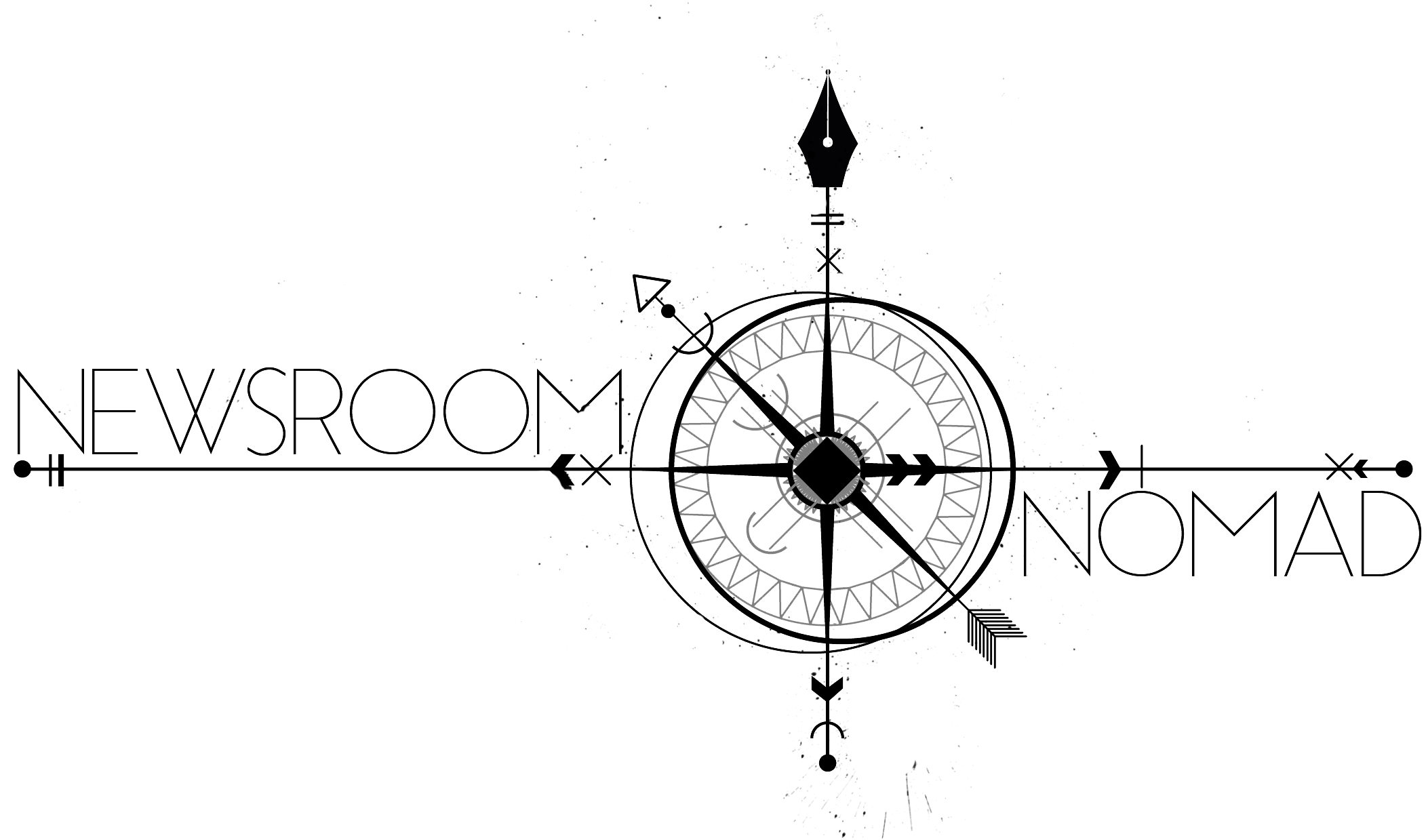
It all started with one simple question the taxi driver picking me up from Beirut airport asked me. “That’s a nice keffiyeh you’re wearing; do you know what it represents?”
It was a typical humid evening in Beirut. The breeze right outside the airport was warm and thick, and my taxi driver had been waiting for a while as I cleared customs coming in from Amman.
Wrapped around my neck was a red keffiyeh – one I had purchased in Jordan’s Wadi Rum. I had spent a few nights there; it was a shortstop during a long work trip where I was able to pick up my breath and take in the beautiful scenery and solitude under clear star-filled skies and endless desert landscapes before heading back to busy Beirut.
“That’s a nice keffiyeh you’re wearing,” he remarked with a smirk as we walked towards his car. “Do you know what it represents and who dons this color keffiyeh?”
My inner defenses kicked in: aware of the sensitivities the question might evoke, I quickly explained where I had purchased it instead of answering – downgrading the garb to a sort of touristic token so as to end the inquisition right there and then.
“But do you know who used to wear this red keffiyeh in Lebanon?” he pressed.
Of course, I did: the Palestinians, Marxist movements, and their allies. Easy. And so I shot back the first answer that came to my head: “El-Jabha al-Sha’biyeh (The Popular Front for the Liberation of Palestine)” – leveling my gaze directly into his eyes, hoping that the confidence in the tone of my voice and the stare in my eyes might shut down the potential of a continued conversation right there on the spot. It was a long way home, and I would be alone in a car with a complete stranger. I was tired and not particularly in the mood to engage in political banter and confessional jousting at 9 p.m. after a long day of traveling and waiting at airports. On the other hand, I wanted him to understand that I was not at all daunted by his assumptions about my knowledge – let alone his questions.
Deciding to go against social ‘norms’, I deliberately chose to sit in the passenger seat next to him rather than sitting in the back seat. Foolish and risky? Perhaps, but I couldn’t help thinking of my own father, who also drives a taxi. I also wanted to reaffirm that I was not at all intimidated.
Little did I know that the red keffiyeh I was wearing would lead to one of the most interesting conversations in my life. I’m not exaggerating: this conversation was both emblematic of Lebanon in all its complexities, layers, tragedies, and above all, unconventional love stories and friendships.
“Oh, have I got a story for you,” Rafeek* said, right after putting my luggage in the trunk. His mood began to change as we made our way outside the airport, the parking attendant affectionately waving at him as we exited. That small act of filial familiarity and recognition, combined with his sudden shift in attitude, and the cool breeze coming out of the air conditioner prompted me to slowly let my guard down.
A few kilometers into our journey and Rafeek stops on the side of the road. Without even asking, he buys two small cups of Arabic coffee in disposable plastic cups. One for me and one for him.
“I fell in love twice with two women who wore that keffiyeh, and joined two parties during the war because of them,” he started as he slowly sipped.
“Those were the best days of my life.”
“The best days” is an odd expression often used by the war generation to describe the years that spanned civil-war Lebanon (1975-1990). Not because of its brutality, of course, but because it was during that chaos that many people were able to break down social norms and conventions. Arms, money, and illicit drugs were flowing freely and in abundance. Lebanon’s party scene that is popular today was beginning to thrive. It was at that time that the Lebanese became known for partying like there was no tomorrow – literally. In the middle of a war, you don’t know if there will be a tomorrow after all. And the war had gone on for too long and had become the only thing many had ever known.
“I used to call it the [civil] war of the ‘end of the month’ [harb ekher el shaher], because all the boys on the front lines would intensify the fight towards the end of each month to guarantee a paycheck,” Rafeek said. “We were no different. I was no different.”
“I joined two parties, and twice in pursuit of love. But they both never worked out,” he laughed. “I made many friends though…Hear this story.”
It was the red keffiyeh I was wearing that brought back memories. The two women he loved both donned the garb, and fought like many of their generation. While many took part in the violence for a cause they believed in, others were sucked in for different reasons – like Rafeek.
“When I picked up that gun during the 80s I knew I didn’t want to kill anyone, so when I shot, I made sure I missed, unless there was a direct threat,” he told me.
Rafeek was fascinating. Not only in the way he spoke, but in the manner in which he presented himself: the man who appeared to be in his late 40s was unapologetic, bold, sweet, and funny. He had piercing dark eyes that commanded a presence and an audience all at once; and so, I listened.
“Though I am Muslim and those facing us were Christian, a friendship was struck between myself and another man, Tony – and both of us would warn one another when we knew the fighting was going to intensify.”
Tony and Rafeek were posted on the opposite sides of what was known during civil-war Lebanon as Beirut’s green line, a de facto border which separated the mainly Muslim factions in predominantly Muslim West Beirut from the predominantly Christian East Beirut.
“It was an over-the-wall friendship that he and I nurtured over many years. When we weren’t shooting, I’d ask him what he did on his days off the field, where he’d spent his weekends, what he drank and with whom, and I’d tell him all about mine.”
And things remained as such up until the late 80s. “It wasn’t until I left the frontlines that I met him face-to-face. He had told me where he lived and I went searching for him.”
Tony was a fighter with the Lebanese Forces, a now demilitarized party in both Lebanon’s Parliament and Cabinet. They were one of the main factions that participated in the Lebanese civil war. He hailed from Jounieh’s Haret Sakher, north of Beirut. Rafeek knew this because he had asked for directions to his house before Tony left the bunkers. “Tony gave me directions; I think at that moment, he didn’t think I’d ever follow.”
When his post was over, Rafeek went looking for his erstwhile friend. “I looked for the house he described, past a pharmacy and a clementine orchard,” he recalled. “I knocked many similar looking doors until on an old woman answered, and looked sharply at me, examining every detail in my face.
“‘Is Tony here? I asked.’ ‘Yes, he is. Are you one of his Owwet [Lebanese Forces] friends?’” she asked.
“‘Yes, I am.’
“‘Well, go in, he’s inside,’ she pressed, gesturing with her hands as she carried a plastic container filled with dough. ‘I’m going to go make some man’oushes [traditional Lebanese flatbread mainly topped with thyme]. Wake him up and I’ll have breakfast ready by the time you’ve both had your coffees.’
“I walk in, find a man asleep with a gun on his bedside table. I grab the pistol, unload it, and gently shake Tony several times… He wakes up in bewilderment and quickly grabs his gun after finally recognizing who I am. A few seconds pass before I hand him back the magazine and tell him to shoot if he truly believed I had come all the way to his house to kill him. We embraced for several minutes after that.”
In the few years that followed, Rafeek and Tony would become the closest of friends; two buddies who would party together, love together, play cards together, pass time together, and cry together, even though they were expected to hate one another. It was a strange friendship given that it started off as two strangers, who behind enemy lines, would warn one another. But then, many things were strange throughout that chapter in Lebanon’s recent history.
“One time we were in a nightclub in a Christian area when all of sudden everybody took up their guns and ran outside. We knew something was going to happen and a battle was approaching. We could hear many men say, ‘the Muslims are coming, the Muslims are coming! We will get those bastards!’ and I and my friends—who had also befriended Tony and his friends—started echoing the same calls, ‘We’re gonna get them!’ … We didn’t want to stand out both for our safety and for the safety of Tony and his friends.
“We laughed so hard when we made it back to his place. We laughed until the early hours of the morning.”
To many, laughing might seem a ludicrous act in the face of such danger. But the truth of the matter is, what could have easily devolved into a dangerous situation didn’t. What was ironically humorous is that Rafeek and his friends, in that moment, chose personal friendship over religion, sect, and political ideology going once again against the same marker of identity that they were otherwise fighting to protect on the frontlines.
But their luck would eventually run out.
“Tony was killed in battle in the late 80s. I had never cried for any of my lost friends the way I cried for Tony,” Rafeek said. “I will never forget him. He was really something else.
“Damn the war for the people it robbed us of and damn its masters who now rule this place.”
Our journey was coming to an end. Slowly, I give Rafeek directions to my home. He didn’t seem to be overly familiar with the several intersecting streets that comprise my mountain town, but he did recognize the nearby monastery.
Shortly after, we had reached our destination. And with that realization, Rafeek ended his story. Returning back from the temporary distraction of grand storytelling to his quotidian job, he dropped me off, but not without asking me first, the same way he did Tony, what I would be doing on the weekend, what I’d be drinking and with whom.
*Names have been changed.
*Co-edited by Sarah Mallat, and Kareem Chehayeb.
